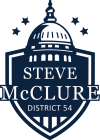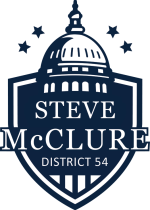Representatives from local governments and good government organizations spent nearly four hours meeting with the bipartisan Senate and House Joint Commission on Ethics and Lobbying Reform on Jan. 15.
The witnesses testified about the existing ethics rules and where perceived shortcomings in state law exist. Arguments were made for closing the so-called “revolving door” loophole that allows elected officials to immediately begin lobbying after leaving office. Illinois is one of a handful of states that allow such activity.
Witnesses also noted that reforming ethics and lobbying rules should include guidelines allowing for the greatest transparency for citizens. They also said while there are legitimate “lobbying” efforts as part of an elected official’s normal duties, getting paid to lobby while holding office crosses the line and should be prohibited. Many local governments, including the City of Chicago, have strengthened ethics rules in recent years, including prohibitions against paid lobbying by current office holders and instituting waiting periods to combat “revolving door” activity.
Since the start of the 101st General Assembly a year ago, more than a dozen ethics/lobbying reform measures have been introduced, including four separate bills in the new year. The Joint Commission was created in the wake of several federal raids, indictments, and ongoing investigations. Two state legislators have since resigned.
The panel was created during last fall’s Veto Session. The Commission is empowered to issue periodic reports on its activities, but it is tasked with presenting a final report on its review and recommendations by March 31 to be given to the General Assembly, Governor, Attorney General, Treasurer, Comptroller, and Secretary of State.


